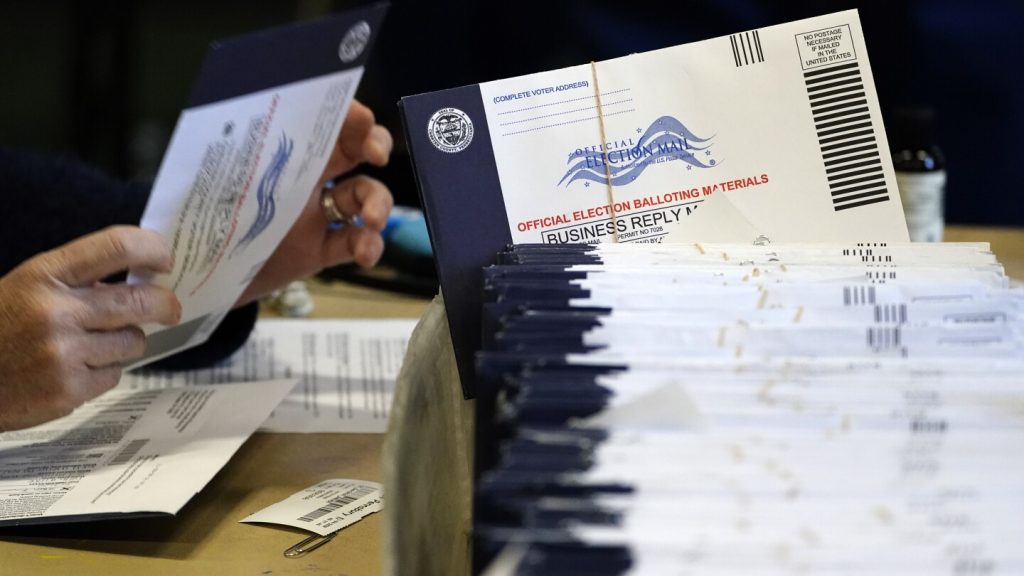A court proceeding in Harrisburg, Pennsylvania on Thursday addressed the technical requirement for voters to write accurate dates on the exterior envelope of mail-in ballots. Advocates argued that this mandate unfairly leads to valid votes being thrown out, despite it being upheld by both the state Supreme Court and the 3rd U.S. Circuit Court of Appeals. The case was brought by the Black Political Empowerment Project, Common Cause, and other advocacy groups against the secretary of state and elections boards in Philadelphia and Allegheny County. They claim that enforcing the date requirement infringes upon voting rights and that prior cases did not directly rule on whether it violates the state constitution’s Free and Equal Elections Clause.
The number of potentially invalid ballots due to the date requirement is estimated to be around 10,000 or more across Pennsylvania, with affected voters tending to be older. Democrats have embraced mail-in voting more than Republicans, with over a third of ballots in the state’s recent primary election being cast by mail. During the court proceeding, Judge Patricia McCullough questioned the Commonwealth Court’s authority to change a legislatively enacted rule. John M. Gore, a lawyer representing state and national Republican Party groups in the lawsuit, argued that the dating requirement is not so burdensome as to deny people the right to vote. He stated that the dates provide evidence of when ballots were completed and submitted, emphasizing the seriousness of the voter’s choice to vote by mail.
County elections officials in Pennsylvania do not rely on the handwritten envelope dates to determine if mail-in votes were submitted on time. Mail-in ballots are typically postmarked, processed, and time-stamped by officials, with the actual presence of the ballots serving as evidence that they arrived before the Election Day deadline. The court panel is considering whether striking down a portion of the 2019 voting law, specifically the dating requirement, would trigger the invalidation of the entire law. Mail-in ballots, including the dating requirement, have been the subject of multiple legal cases in Pennsylvania in recent years. The 3rd U.S. Circuit Court of Appeals recently upheld the mandate for accurate, handwritten dates, overturning a district judge’s decision. The Pennsylvania Supreme Court ruled in 2019 that mail-in votes cannot be counted if they are in undated or incorrectly dated envelopes.
The justices were divided on whether making the envelope dates mandatory under state law would violate provisions of the U.S. Civil Rights Act of 1964. During the April primary election, redesigned exterior envelopes led to a decrease in the rate of rejected mail-in ballots, according to state elections officials. The ongoing legal battle highlights the complexities surrounding mail-in voting regulations and the impact of technical requirements on voters across Pennsylvania. The outcome of this case could have implications for future elections and the broader discussion of voting rights and access in the state.















